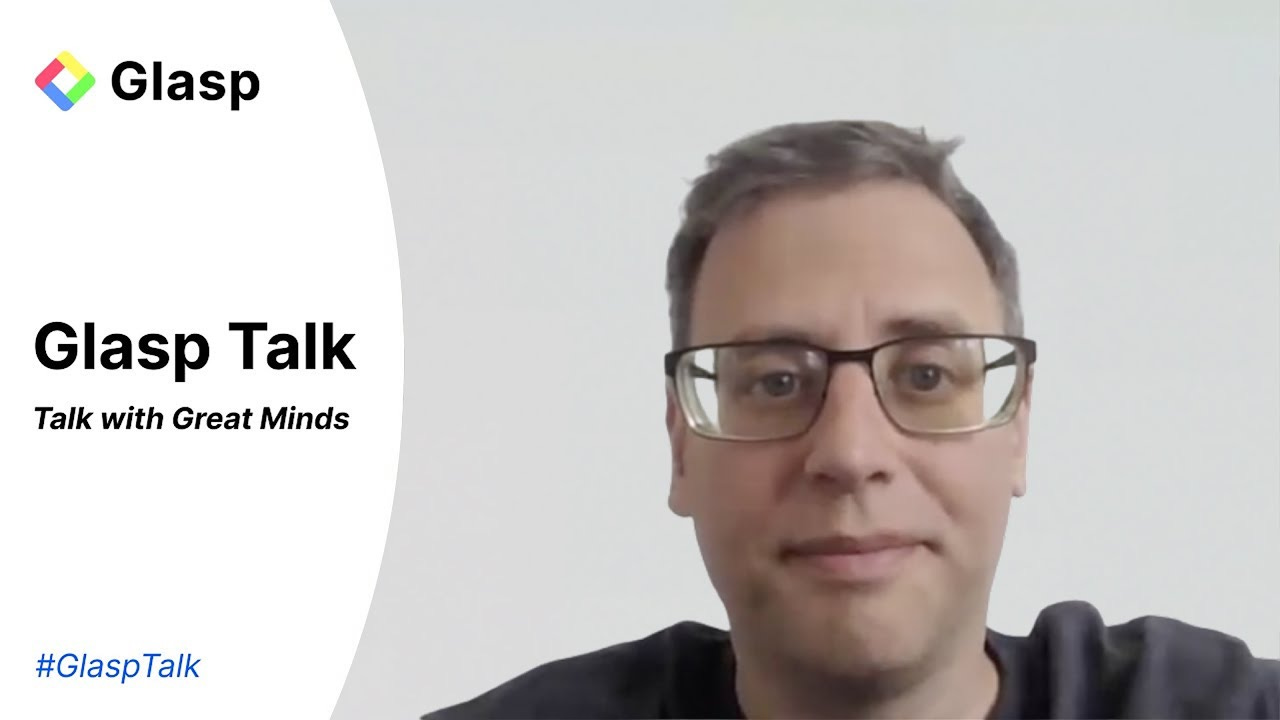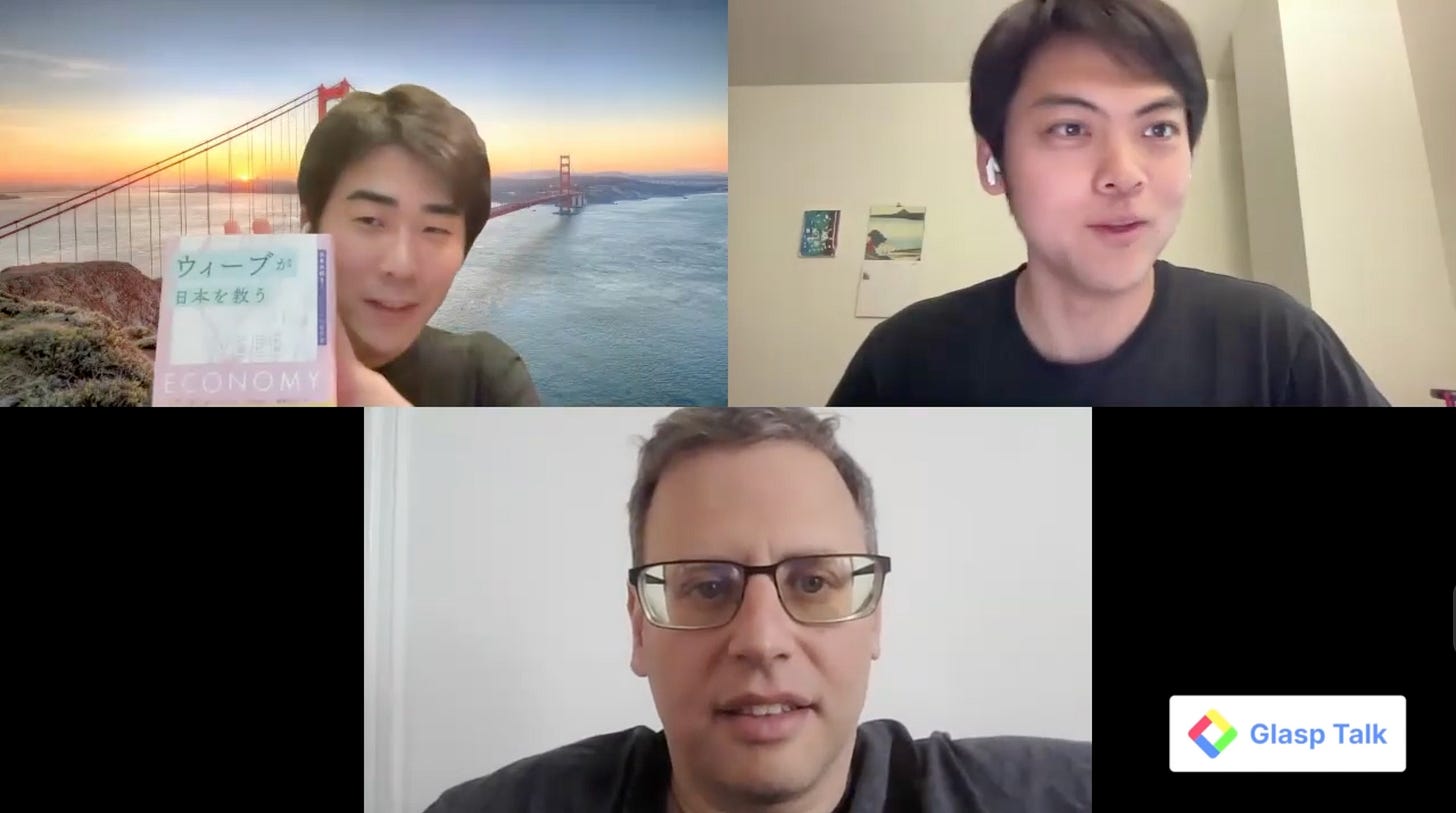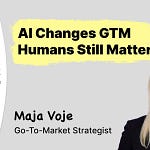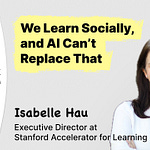This is the fifty-eighth session of Glasp Talk.
Glasp Talk delves into intimate interviews with luminaries from various fields, unraveling their genuine emotions, experiences, and the stories behind them.
Today’s guest is Noah Smith, one of the most influential voices in tech-driven economic commentary. A former assistant professor of economics with a background in physics, Noah is now a widely read writer and commentator, known for his sharp and data-driven insights shared through his newsletter, Noahpinion, and his social media presence. His work seamlessly bridges economic theory with real-world shifts in technology, policy, and global strategy.
Watch the full episode on YouTube
Get a quick overview & summary
✨ Want a concise summary before diving in? Install the YouTube Summary with ChatGPT extension by Glasp for instant video summaries!
Transcripts of YouTube
Hi everyone, welcome back to another episode of Glasp Talk. Today, we are very excited to have Noah Smith with us. So Noah is a renowned economist, writer, and commentator known for his sharp insights into economics, technology, geopolitics, and culture. He is the Founder and Writer of Noahpinion, a widely read newsletter with nearly 400,000 subscribers that distills complex topics into engaging, digestible reads. With a PhD in Economics from…. Read More
Highlights
From Physics to Economics to Public Voice:
Noah Smith shares how his path from physics to economics, along with a formative three-year experience living in Osaka, Japan, shaped his unique worldview. Now a full-time writer behind the influential Noahpinion newsletter, he unpacks complex global issues in technology, economics, and geopolitics for a broad audience. His goal is not to dominate debate but to elevate nuanced thinking and accessible analysis.
The Limits of Prediction and the Case for Optimism:
Noah challenges the reliability of economic and technological forecasting, especially in fast-evolving global environments. Rather than obsessing over predictions, he advocates for adaptive strategies, experimental policymaking, and an optimistic mindset that prioritizes resilience and long-term progress over fear-driven inertia.
Japan, the Weeb Economy, and Strategic Investment:
Drawing on insights from his time in Japan, Noah highlights the country's cultural cohesion and decentralized industrial structure as sources of resilience. He introduces the “Weeb Economy,” a model of economic strength rooted in networks of small, interconnected firms. He also identifies Japan’s potential for greenfield investment and smarter urban development as key opportunities for renewed economic vitality.
Key questions & insights
Q: What led Noah Smith to transition from academia to becoming a widely read writer and commentator?
After years of teaching economics and spending three formative years in Osaka, Japan, Noah realized that academic publishing often fell short in reaching people who shape public opinion and policy. He created Noahpinion to share economic, technological, and geopolitical insights with a broader audience. His goal is to make complex ideas both intellectually rigorous and widely understandable, bridging the gap between scholarly analysis and real-world relevance.
Q: Why does Noah emphasize the limitations of economic and technological predictions?
Noah highlights that in dynamic global systems, precise forecasting is rarely accurate and can sometimes lead to dangerous complacency. He stresses that instead of clinging to predictions, societies should focus on building flexible systems, encouraging experimentation, and embracing adaptability. Being wrong is inevitable, but being resilient is a choice.
Q: What is the "Weeb Economy," and how does Noah connect it to Japan’s resilience?
Noah’s “Weeb Economy” concept describes an economic model built on thousands of interconnected small and medium-sized enterprises. In Japan, this structure contributes to long-term stability and innovation by avoiding overdependence on a few dominant players. The collaborative nature of these networks allows the economy to better absorb shocks and evolve incrementally without collapse.
Q: How does Noah assess Japan's economic potential and future outlook?
While Japan is often labeled stagnant, Noah sees a country with quiet strength. He points to its strong social cohesion, advanced infrastructure, and deep-rooted industrial base as underutilized assets. He believes renewed greenfield investment, alongside urban revitalization and openness to immigration, could unlock a new era of sustainable growth.
Q: What mindset and strategies does Noah recommend for facing the future?
Noah advocates for a mindset of cautious optimism grounded in long-term thinking. He encourages both individuals and governments to build antifragile systems that improve under pressure. Instead of fearing disruption, we should design institutions that adapt, experiment with bold ideas, and prioritize progress over paralysis.
Follow Noah Smith on social
Partner with Glasp
We currently offer newsletter sponsorships. If you have a product, event, or service you’d like to share with our community of learning enthusiasts, sponsor an edition of our newsletter to reach engaged readers.
We value your feedback
We’d love to hear your thoughts and invite you to our short survey.















